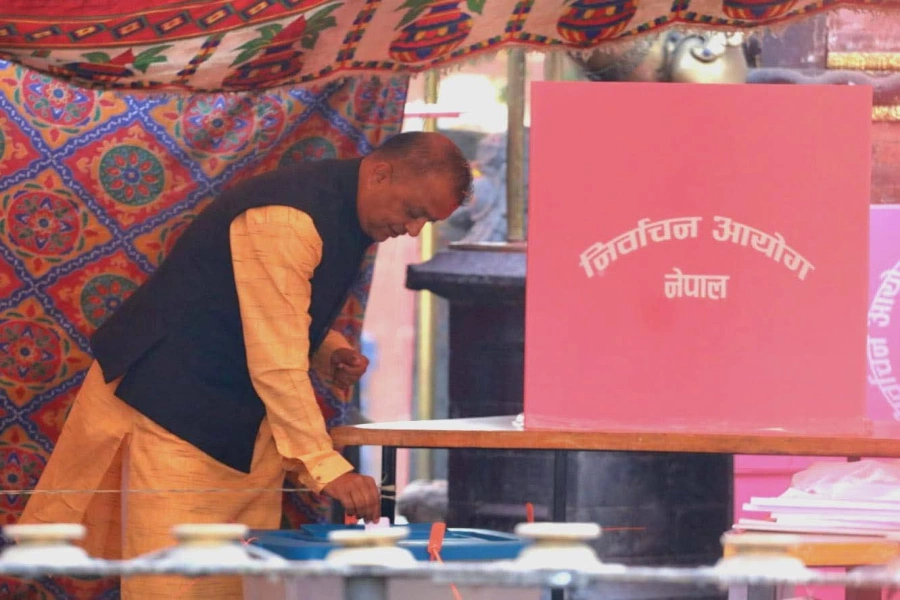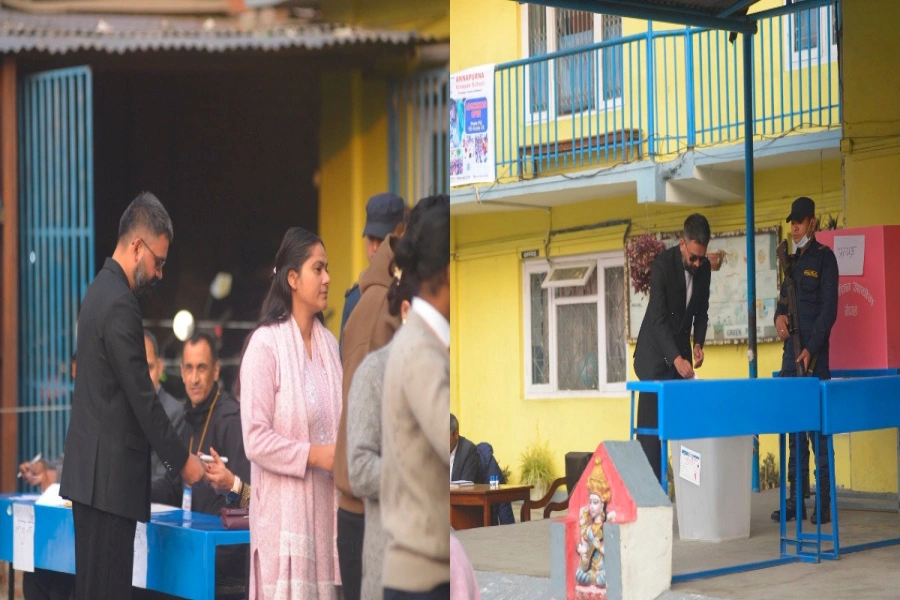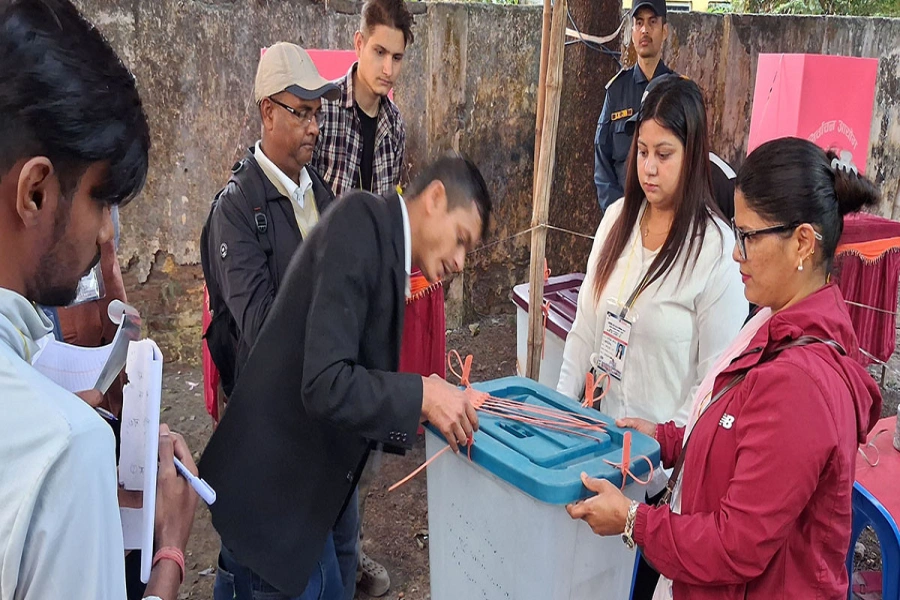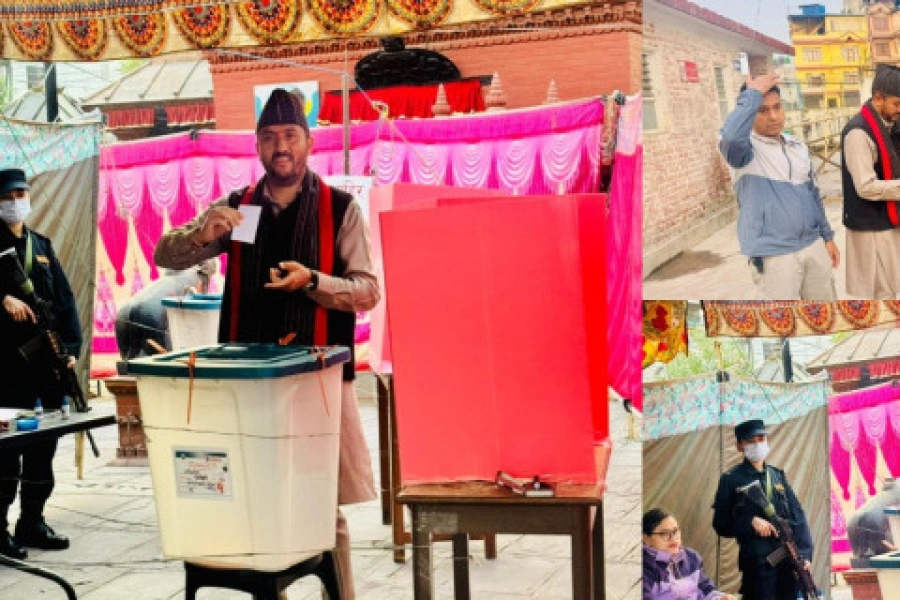Sabina Shahi, a health worker from Dhangadi, vaccinated dozens of children below two years of age in the last three days. Nearly 140 parents came on Tuesday alone at Beli Health Center to get their children vaccinated. Some of them had recently returned from India and they did not bring vaccination records. Shahi had no choice but to vaccinate all the children indiscriminately. And she did so without wearing proper gloves, goggles or a cap.
If the fast spreading COVID-19 infects her during this tedious task, she won’t be able to track down the infected. "We have no choice but to work in the field where we come in contact with hundreds of people everyday. But fear looms deep inside. We do not even have the PPEs," she lamented.
According to Janaki Prajuli Mishra, a public health officer in Dhangadi, health workers have been working under immense psychological pressure. They feel unarmed and yet they have to go to the field. It is not that the Dhangadi Sub-metropolis turned a blind eye to the concerns of the health workers. 'The office did its best' to avail proper safety materials for those working on the frontlines. However, it did not get enough support from the center.
Alia Bhatt's picture doing aerial yoga will give you ultimate f...

According to Khumba Raj Sharma, health coordinator of the metropolis, the directives issued by the government emphasize PPE only for those directly dealing with coronavirus patients. However, the local administration has been trying to address safety issues of health workers. "We understand that there is a need for PPE for all kinds of health workers, but we don’t have sufficient sets. Whatever few sets we have were provided by organizations,not by the government," he reported.
Maximum cases of COVID-19 have surfaced in Karnali province. The death of the 25-year-old during the quarantine in Narainapur Rural Municipality – 5 has drawn wide attention. Though detected with COVID-19 post-death, few believe that he died due to the virus. He did not get immediate medical response as his health condition was deteriorating.
And this largely happened because of the remoteness of the place as well as the lack of PPE among health workers and ambulance drivers. According to the deputy mayor of Nepalgunj Sub-metropolis, Uma Thapa Magar, every quarantine needs to have at least two health personnel, but they lack medics on site. When his health conditions deteriorated, immediate support was not available and ambulance drivers and health staff were not willing to take the risk. "We failed to save him. We don't have enough PPE sets for everyone, remote areas are even neglected," she noted. She added that the gravity of the problem triggered by coronavirus and the level of preparation mismatch. And it is not just because of the lack of resources but the lack of smartness or collective efforts by the three levels of governments – local, provincial and the federal.
"Putting people in quarantine is upto us, the local level, but then, we don’t know who should take care while sending them to isolation wards. We have no idea how to handle when a COVID-19 patient dies. It's a mess as the federal government has failed to make a consolidated response," she said. "The number of infected is growing overnight but we have very few isolation wards and hospitals," she added.
While the public has constantly urged the government for more effective measures to combat the virus, experts believe that the government has not even taken a few simple steps.
"For instance, there was enough time for the government to have medical professionals on stand by and provide them training and orientations. Stipends should be provided for their motivation. Double partition of ambulances and other vehicles was necessary. Central control mechanisms for ambulances with GPRS systems and so on are not expensive, but they are vital things during emergencies. But nobody is thinking about that," Dr Sagar Rajbhandari, director of Sukraraj Tropical and Infectious Disease Hospital, said.
Dr Rajbhandari remarked that the government has been making efforts but not to the optimum level. The government has failed to form a task force consisting of experts. Those who can provide practical ideas on ways to battle with COVID-19 are hardly called for meetings and consultations, he said. "I am not saying they should call me, but they should be open to involve experts and form a task force to respond to this crisis." Nepal has lost two lives due to COVID-19 so far, and more than 400 have been infected till date.

















-1200x560-1772642762.webp)





















